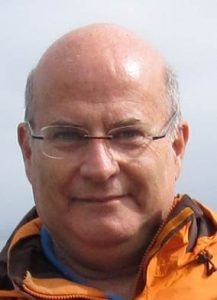I was born in 1959 from Protestant mother and Catholic father and their continuous diversity helped me develop an independent and non-religious way of thinking.

In 1977, as a consequence of an existential crisis, I developed the theory of Syntropy. I could see that consciousness and feelings cannot be explained in a mechanistic way, but they require a property which is symmetrical and complementary to physical energy. Although I was very gifted in mathematics and physics the theory of Syntropy led me to enrol in the faculty of psychology. I was very disappointed with the mechanistic approach to psychology and this brought me to specialize in experimental psychology where I developed methodologies and software tools which allow to handle together quantitative and qualitative information, objective and subjective.
After the dissertation I enrolled in a PhD in Statistics. The Dean of the faculty of Statistics recognized in my Syntropy theory the work that the mathematician Luigi Fantappiè had developed in the 1940s. Although Fantappiè was one of the major mathematicians of that period (he died in 1956) all his publications on Syntropy were unavailable, they had been removed also from the archives of his family. The PhD dissertation led to the formulation of the methodology of concomitant variations and a software which can now be found on Amazon.
Since 2001 I have been continuing this work with my wife Antonella Vannini who has provided impressive experimental evidence on retrocausality -see Retrocausality: Experiments and Theory. The theory is now robust and supported by a wide range of experiments, the methodology is well formulated and the software has been developed and tested in the last 30 years. Antonella and I have been witnessing a total closure in the academic world, mainstream journals and grants. In the academic world there is widespread fear of losing grants and the possibility of publishing giving support to a theory which introduces retrocausality and a supercausal approach to reality. Although academicians privately support us, they don’t want to appear as supporters. This has brought us to the conclusion that extending the scientific paradigm is opposed by a well organized “system” which controls money and information, at least in the West since the end of WWII. More about the theory of syntropy can be found in our book The Law of Syntropy.